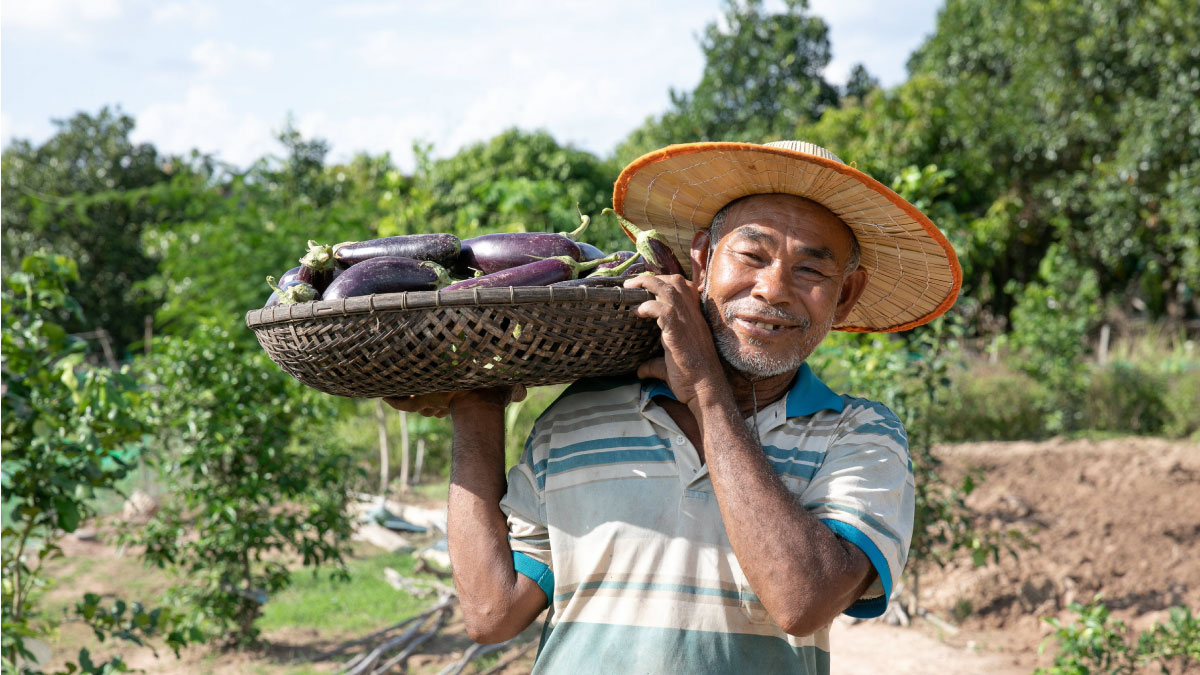With over 735 million people facing hunger globally, $680 billion is needed annually from now until 2030 to revamp agrifood systems in low and middle-income countries.
© FAO | Transforming agrifood systems requires $680 billion annually from now until 2030 in low and middle-income countries.
The UNCTAD World Investment Forum 2023 opened on 16 October in Abu Dhabi, United Arab Emirates, with urgent calls for more public and private investment to transform agrifood systems amid a global hunger crisis affecting over 735 million people.
Agrifood systems, which encompass all the activities needed to get food from where it’s grown to where it’s processed, eaten and disposed of, are pivotal in tackling global challenges like malnutrition, poverty, biodiversity loss and climate change.
Speaking at the opening of the forum’s high-level session on agrifood systems, UNCTAD Deputy Secretary-General Pedro Manuel Moreno said crises such as the war in Ukraine and climate change require food production and supply chains in many countries to adapt and transform.
“And it is very often the poorest countries that are affected the most but have also the fewest means to adapt and transform their food systems,” he said.
Time to turn the tide on food investment
Despite the supply chain shocks and food price inflation due to multiple crises, international financing and investments in agriculture and agrifood systems haven’t increased.
UNCTAD’s World Investment Report 2023 revealed that the number of international investment projects in agrifood systems is lower today than it was in 2015 when the Sustainable Development Goals (SDGs) were adopted and the world committed to a world of zero hunger.
Mr. Moreno said the forum could help turn the tide through actions to channel more of the funds invested in sustainable finance in global capital markets to food production.
“These markets offer a real opportunity as underlying investments have been growing steadily,” he said.
He also urged the participants to explore how technology can help boost the productivity and resilience of food systems and how to reduce loss and waste in food supply chains.
Globally, around 13% of food produced is lost between harvest and retail, with an additional 17% wasted in households, food services and retail combined, according to the Food and Agriculture Organization of the United Nations (FAO).
Food systems at heart of global goals
FAO Director-General Dongyu Qu said global agrifood systems are at the heart of the high-priority SDGs.
He said transforming these systems will contribute not only to eradicating poverty, ending hunger and improving nutrition, but also to ensuring they are more efficient, inclusive, resilient and sustainable.
“We need to mobilize increased and targeted investment,” Mr. Qu said, adding that transforming agrifood systems will cost $680 billion annually between now and 2030 in low and middle-income countries. This amount comprises $425 billion in investments and $255 billion in social safety nets.
Mr. Qu said in developing countries, farmers, processors and other actors in agrifood systems need help to access financial resources and services to boost resilience to global shocks.
The goal is to strengthen and further develop national capacities for agrifood transformations that are country-led and owned so they are more adapted to local contexts and specific needs.
Both public and private sector investment critical
Other speakers underlined the urgent need to scale up public and private SDG-aligned investment in agrifood systems to reduce food insecurity and foster rural employment, particularly for women and young people.
Discussions also focused on various financing and investment mechanisms and pathways for transforming agrifood systems and how to build strategic partnerships for such investments.

